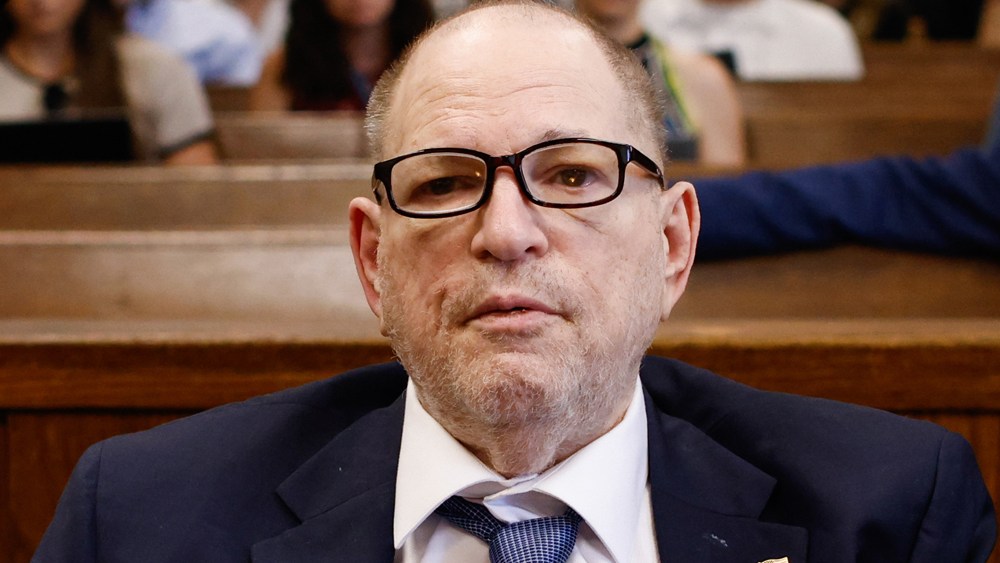Harvey Weinstein will face his third criminal trial this week, in what we be seen as the latest referendum on the #MeToo movement, which began with his disgrace nearly eight years ago.
Weinstein, 73, has been incarcerated since being found guilty of rape and sexual assault in 2020. But the highest court in New York vacated his conviction last year and ordered a retrial. His defense team now hopes that a different judge and a changing political climate give them a chance at an acquittal.
“It’s going to be a very different trial,” said Jennifer Bonjean, one of his attorneys. “The mob mentality that was so pronounced at his first trial, I think, has subsided… He’s going to have the trial that he should have had all along.”
Jury selection begins on Tuesday and is expected to last several days. Opening arguments are tentatively set for April 22, and the trial could run four to five weeks.
The most obvious difference will be the number of accusers. At the first trial, Weinstein faced testimony from six women — three whose allegations formed the basis of the charges, and three more to lend credibility and establish a pattern of misconduct.
But the Court of Appeals ruled that that the additional witnesses biased the case and should not have been called. As a result, the prosecution — led by Shannon Lucey and Nicole Blumberg — will call only three accusers to the stand: Miriam Haley, Jessica Mann and a woman known — for now — only as CW-3.
Haley and Mann testified at the first trial in 2020. Haley alleged that Weinstein forcibly sexually assaulted her at his apartment in 2006, while Mann accused him of raping her at a hotel in 2013. The defense argued, unsuccessfully, that the encounters were consensual. The third woman, whom prosecutors added to the case after the initial conviction was overturned, alleges that Weinstein assaulted her at a hotel in 2006.
Arthur Aidala, another Weinstein lawyer, maintains that the jury in 2020 faced pressure to convict, but that “the world has changed” since then.
“That’s why maybe he’s got a chance this time,” Aidala said. “Maybe the jurors will come in with a little more of an open mind.”
The defense is also happy to have a new judge. In 2020, Justice James Burke issued a series of pre-trial rulings that infuriated the defense, and at one point threatened to throw Weinstein in jail for using his phone in the courtroom. Burke was not reappointed to the bench.
In his place will be Justice Curtis Farber, who was described in a New York Law Journal profile last year as “even-keeled” and “unflustered.”
“This judge is the cream of the crop,” Aidala said.
The defense argument will be much the same as the first time, Aidala said.
“Yes, he was cheating on his wife. Yes, he was a bad guy for doing that,” he said. “But these were consensual affairs.”
The prosecution declined to comment for this story. Gloria Allred, who represents Haley, also declined to comment, as did representatives for the other two accusers who will testify.
Weinstein himself is in deteriorating physical condition at Rikers Island, according to his spokesperson. He recently gained 25 pounds, and is battling a tongue inflammation that makes it difficult to swallow and creates a choking hazard, said the spokesman, Juda Engelmayer.
Engelmayer said the poor conditions in the jail have contributed to his decline, leading to a “medical crisis” that could be life-threatening.
Nevertheless, Weinstein is still following news and commentary about his case, including from right-wing podcaster Candace Owens, who recently argued that he was wrongfully convicted. Joe Rogan picked up on Owens’ take last month, saying he was persuaded to see the allegations in a different light.
“I can’t believe I’m on Harvey Weinstein’s side,” Rogan said. “I thought he was guilty of, like, heinous crimes… He was just in the wrong place at the wrong time. If this happened in the 80s, they probably would have thrown it out. But in the #MeToo movement, it was a hot witch hunt.”
After the Rogan episode, Weinstein issued a statement through Engelmayer saying he was “deeply grateful to Joe Rogan for his thoughtful examination of the legal challenges I am facing.”
“He has provided me with a glimmer of hope during what promises to be a challenging period,” Weinstein said.
Regardless of the outcome, Weinstein has to serve a 16-year sentence for his conviction in Los Angeles, though that case is on appeal.
As the retrial gets underway, the biggest unknown is whether Weinstein will testify.
At the first trial, Burke gave prosecutors permission to confront Weinstein with a barrage of damaging allegations if he had taken the stand. Aidala argued at the Court of Appeals that Weinstein was “begging to tell his side of the story,” but that Burke’s ruling essentially made that impossible.
The appeals court found that ruling, too, was improper, saying the only purpose was to underscore Weinstein’s “loathsome character.” In the retrial, the prosecution’s leeway is expected to be curtailed considerably.
“We gotta see how the case plays out,” Aidala said. “He’ll be prepared to testify if that’s what needs to be done.”



